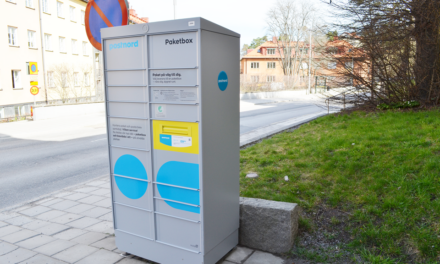
Union calls for more revenue-raising ideas in US postal reforms
As the US Senate continues to debate major postal reform legislation today, a white paper from America’s largest postal union has warned that the proposals do not do enough to help increase Postal Service revenues. The paper was written by advisors at global investment bank Lazard on behalf of the National Association of Letter Carriers, which represents 280,000 mail carriers.
It says the bill being debated in Congress this week, S.1789, has little in it to expand USPS services or provide more flexible pricing to help the Postal Service out of its $22bn budget black hole.
While it does support S.1789’s proposals to hand back pension surpluses and restructure pre-funding requirements for retiree healthcare funds, overall, the paper says a more “fundamental rethink” is needed regarding the USPS business model than the current proposals.
However, its suggestion for a more fundamental rethink appears to be to leave the current USPS network alone, and simply do more to fill the excess capacity.
The plan to save the Postal Service should be based on “shared sacrifice”, says the report, pointing to mailers paying more in postal rates for regulated mail products, and competitive products having pricing as flexible as those offered by private sector rivals.
The Lazard advisors claim the current USPS cost-cutting plans are “largely based on one-sided employee sacrifice” in terms of facility closures and job losses.
The paper does accept that a future USPS would have “fewer employees”, but written for a union that has this week seen a long-running contract dispute with USPS management going to arbitration, the paper also suggests a change of management and governance is needed.
Regarding the need to reduce excess capacity in the USPS network, with mail volumes down 25% in the last five years, the Lazard paper slams current USPS plans of “shrink to survive”.
“A business plan based on degrading your greatest strength is not likely to be a path to success,” it warns, adding that reducing services and eliminating Saturday deliveries could “easily reduce demand by an amount equal to the alleged cost savings being discussed”.
Raise revenues
Instead of downsizing the network, the Postal Service should come up with a plan that better makes use of the capacity to raise revenues, the paper states.
Its suggestions for such a plan include a more aggressive pursuit of direct mail volumes, particularly from small businesses, as well as parcels, all supported by the more effective Intelligent Mail tracking system currently being implemented across the USPS network.
The paper also makes suggestions for additional services that USPS could run such as postal banking. But, some of its recommendations hint that the government-owned Postal Service should be winning business away from private sector rivals – such as in logistics and freight forwarding. This would go against warnings from Congressmen from both parties that USPS should not be surviving by taking business – and jobs – from private sector companies.
Senator Tom Carper, one of the leading proponents of postal reform in the US Senate, said yesterday that the NALC white paper was “thin on data, analysis, or fresh ideas for modernising the Postal Service.
“The NALC’s proposal suggests that the Postal Service should avoid tough decisions to adjust its mail processing and delivery network,” Carper said.
“It also argues that more should be done to raise revenue through pricing and aggressive marketing, all while offering no concrete suggestions in this regard.”
Downstream impact
A coalition of major USPS customers said yesterday that increasing postal rates, would hurt the budgets of many businesses, who could then decide to find alternative communications channels.
The Coalition for a 21st Century Postal Service said as more USPS customers leave the mail, there would be a “downstream impact” on the nation’s economy and the almost 8m people in jobs relying on the mail.
While US Postmaster General Patrick Donahoe has recently suggested to Congress that raising only single-piece First Class Mail prices significantly would protect business mailers while bringing in $1bn in extra revenue, the Coalition said such a move would still hit businesses.
Art Sackler, the Coalition’s co-ordinator, said: “Even for large businesses that rely on pre-sorted mail, roughly 1 to 2% of that mail ‘falls out’ of pre-sort and becomes ‘residual’ single piece mail with first-class postage.
“On average, the costs associated with these ‘fall outs’ can total in the hundreds of thousands to millions of dollars. If these costs go up by as much as 11%, many of these businesses will look to shift away from the mail,” warned Sackler.













